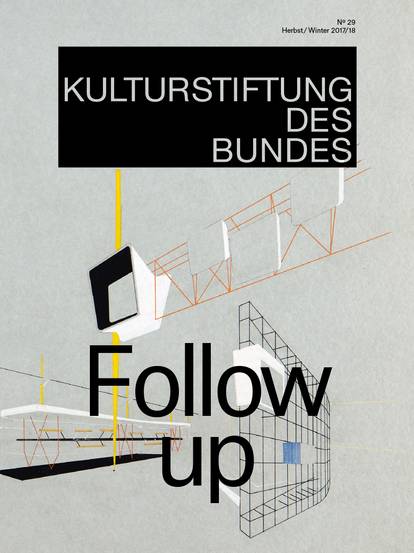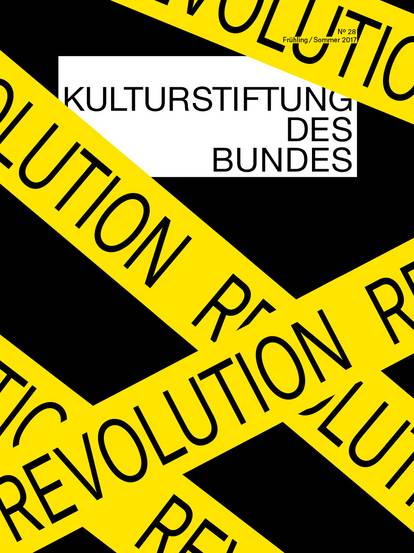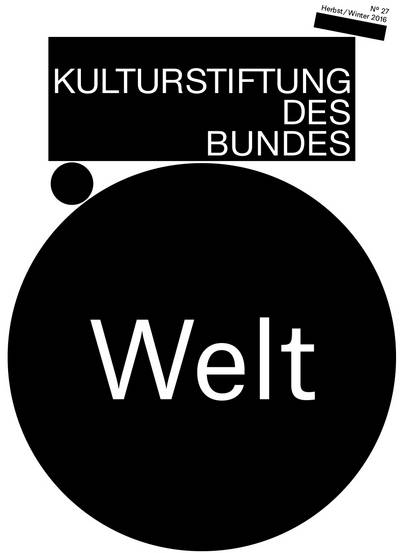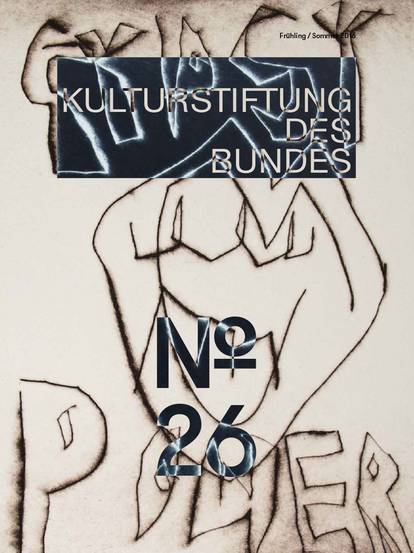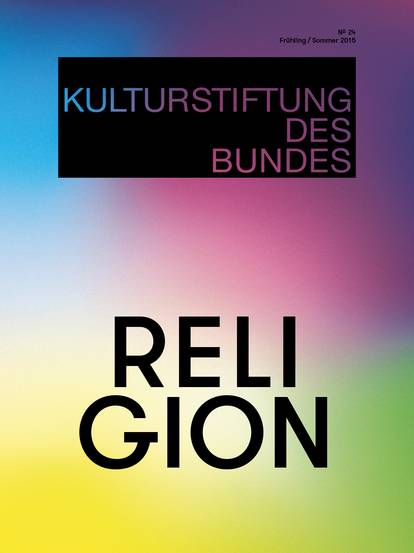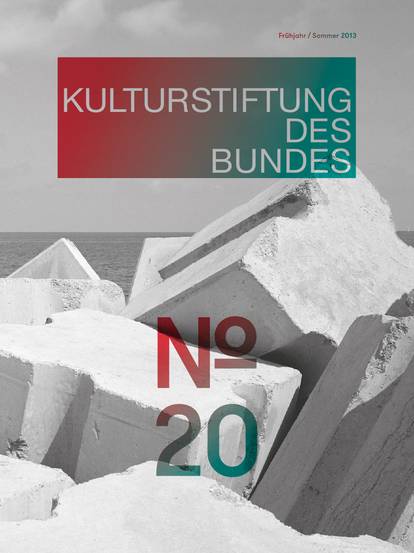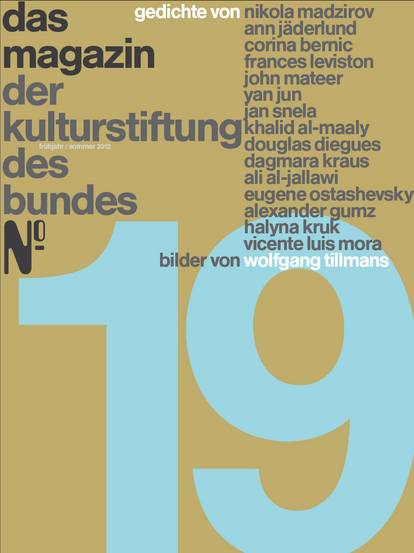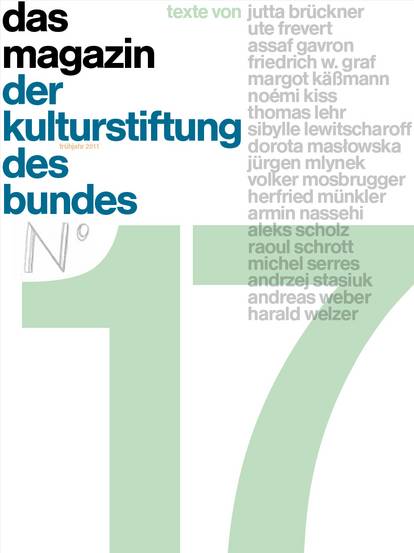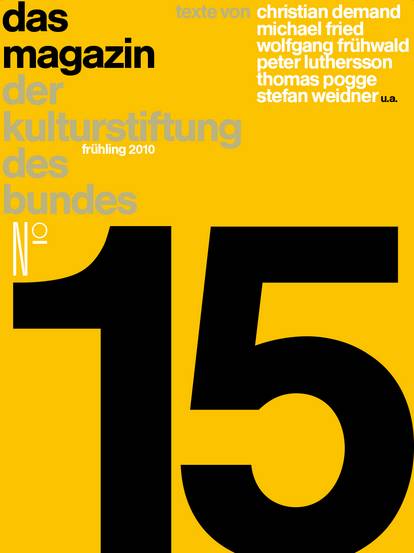Stephan Schlak: The “obligation to remember” was one of the binding reasons of state in the former republic of West Germany. Every ten years or so, the national monologue reignites – in books, films and plays. Germany’s calamitous past was the subject of heated debate especially in the 1990s following the fall of the Berlin Wall. Why have the catchwords remembering and memory become so much a part of our country’s dominant culture?
Christian Meier: It all comes down to the tremendous shock, caused by the Nazi regime and the crimes it committed. Initially, the discussion was described as “coming to terms with the past” and “working through the past” in the false hope that it could work. Then the insistence on remembering increasingly became the focus. This occurred in a blossoming atmosphere of remembrance. Of course, as time went on, this remembrance was cultivated by people who couldn’t remember the events, because they were too young. But people can be made to remember and can help others remember. I’m referring, of course, to the crimes. I used to think that every successive generation would be shocked at discovering what happened in the past. Hochhuth’s Deputy in the early sixties, then the Holocaust film in 1979, the Historian Debate in the eighties and the dispute surrounding the 8th of May – was it a liberation or defeat? – then in the 1990s, culminating once again in Daniel Goldhagen’s book and the exhibition on the German Wehrmacht. But that’s all over now. There’s no real way to stop it.
*
Schlak: How is it possible that the embers of the debate surrounding Germany’s past have extinguished so suddenly – despite rearguard skirmishes over the recently published Das Amt about the German diplomats of the Third Reich?
Meier: Well, the distance is increasing, our fixation on the nation is waning. We’re busy with other things now. The rituals are becoming tedious. Fewer and fewer politicians are capable of offering appropriate comments. Nonetheless, our remembrance will remain vivid and ever more so, the stronger it’s measured out and the more viewpoints it contains.
*
Schlak: In a fulminant essay* you pointed out that, since the ancient Greeks until the First World War, the act of forgetting and moving on was encouraged and practiced in European culture following wars and peace treaties. What lessons from this old European custom can we apply to our times today?
Meier: The realization that constant remembrance could lead to major difficulties. You can’t keep wallowing in the injustices of the past. Not between nations, and certainly not internally within society following dictatorship, civil war and revolution. It causes too much discord, especially if you start right away. It’s a different story if there are bloody reprisals right at the beginning, like in France in 1945. That can actually encourage the call for swift amnesty.
*
Schlak: And why doesn’t that work today?
Meier: It does work. For example, in Spain after the fall of Franco. People in Poland started doing it in 1989. Here in our newly unified Germany, we let the matter rest for almost a decade and only then started very gradually. Which, as I see it, made many things easier. The mood toward the GDR was different back in 1989. It was probably unavoidable - but it wasn’t favorable.
*
Schlak: The culture of remembering with its three didactic principles of “remembering, repeating, and working through” is based on the premise that people can learn from history. To what extent can history be a teacher to us nowadays? As the horizon of the 21st-century opens before us, what lessons of the past can we hold on to for safety?
Meier: Naturally we can learn from history. And we should. Because we are not permitted to experiment with human beings – at least under democratic circumstances. We have to take advantage of the lessons learned about human beings from our wealth of historic material. Yet there’s no way of telling how far you can get with Freud’s three principles. Remembering yes, repeating also yes, but working through? It’s impossible to put an entire society on the couch. Besides, I don’t find the term culture of remembering very suitable. Think of our distorted commemorative environment. It was Jan Assmann who introduced the terms “remembering” and “memorial” to the humanities – much to the dismay of my friend Reinhart Koselleck, who has always advocated one’s right to personal experience which is not culturally transferrable.
*
Schlak: In your book, underlying the obligation to remember and forget, we discover a duel between the major concepts of justice and peace. Our culture of remembering is driven by our impatience for justice. The imperative to forget is fed by the wish for inner-social peace. What kind of balance existed between the wish for peace and the wish for justice in the 20th century? Can we draw a parallel between the prevalence of remembering and the rise of justice as the ultima ratio?
Meier: Indeed, the ancient rule resulted in forcing the victims to relinquish their demand for revenge or justice (even if they were among the victors). Truth and reconciliation commissions are an interesting way to placate them – like the one established [for the victims of apartheid] in South Africa. They concede to swiftly reveal the whole truth to the victims. The law also includes provisions for compensating them. But the perpetrators, should they confess, receive amnesty. And the whole procedure is conducted in a very short period of time. The reason being, to quickly establish a thriving co-existence between blacks and whites. This is an example of applying an ancient rule by means of useful detour.
*
Schlak: Drawing on examples from past centuries, you sharpen our awareness of what is the exception and what is the rule. Forgetting was the rule for most of our history, and remembering was the exception in the 20th century.
Meier: Yes, but there’s also a question of whether we might be seeing the advent of a new rule. The 20th century tried to end all wars – which, to some degree, actually happened after 1945. And a tendency developed to punish those who committed war crimes and crimes against humanity. There have been several commendable steps taken in this direction, particularly the establishment of international tribunals. At the same time, we have become very sensitive to the suffering of the victims. Today, most monuments are erected in their memory, and not for the “perpetrators”. South American dictators have lost the security of exile, which makes solving certain problems – for instance, deposing Gaddafi or Assad – more difficult.
*
Schlak: How would things have turned out differently if the wish for peace following the peace agreements in the 20th century had overridden the demand for justice?
Meier: That could have been an option after World War I. Germany was conquered, it was possible to take away territories and demand reparations. That is how it had always been done. What was new was that amnesty was explicitly refused. It was the first time that subsequent moral costs were imposed on a vanquished country in the form of the famous “War Guilt Clauses”. That was something they could have done without. It would have benefited the course of history. At least it would have meant one less point of contention which the Nazi agitators had with the Treaty of Versailles. Moreover, it demonstrates the falsehood of the popular saying “those who forget are doomed to repeat the mistakes of the past”. If only Germany had forgotten their defeat! If only the Allies had been more circumspect in their demands!
*
Schlak: In your classical study concerning the end of the Roman Republic Res publica amissa, you repeatedly reflect on the political fallout of decisions or the failure to make decisions. Where did you get this instinct for the political side?
Meier: I don’t know if I have an instinct as such. But whatever it is, it comes from my lifelong observation of politics. Both contemporary and historic. Though I was disturbed by one question – in particular regarding the end of the Roman (and the Weimar) Republic, that is, what can function in an era and what can’t. In hindsight we can’t test what would have happened. But there are at least a number of clues that point to what the contemporaries knew, what they envisioned and, of course, could have done and did (or didn’t do) in general and specific situations. You must always strive to verify again and again. With regard to ancient history, it’s especially important to constantly put yourself in the shoes of the contemporaries and imagine yourself in their situation. You won’t understand them if you aren’t certain of where the differences between Greeks and Romans lie. Of course, people are free to do whatever they want. But only within a limited range of possibility. And only as long as they don’t stand in their own way. And only if they can hold steadfast to certain interests, otherwise they can get drawn into irreversible processes.
*
Schlak: You’ve offered some suggestive terms to describe the lethargy of the late Roman Republic. You claim that Caesar had “power in the circumstances”, but no “control over the circumstances”. To what degree can the late Roman Republic serve as a foil for the inability to control circumstances in our time?
Meier: Perhaps in that Caesar (and the late Roman Republic) exemplifies the limits of politics like no other historical figure. It might have been around 1980 when a debate arose concerning the power of the state. The many readers who made my biography a success included a remarkable number of politicians. Günter Gaus, who I had the fortune of meeting on an airplane before he passed away, told me that it was an important book for politicians. Apparently I had opened their eyes to their predicament. Entire cabinets had been given Caesar to read by fellow colleagues. Shortly before forming his coalition government in 1982, Helmut Kohl talked about the book he’d read on vacation – Caesar – in parliament. It appears he wanted to see how he measured up to Caesar before becoming chancellor. My depiction of the powerless Caesar must have touched a chord with many politicians.
*
Schlak: What do you say to the powerlessness of the all-powerful Angela Merkel?
Meier: I would offer a third possibility. There’s no doubt that she wields great “power within the political system”. The question is what this system can achieve in the present circumstances – not to speak of “controlling” the circumstances. The ability of the body politic to shape developments has strongly deteriorated. This is evident in how the Chancellor has to rush to fight one fire after another without extinguishing any of them. Basically our politicians are little more than juveniles. That can be said for the present situation in the EU. As soon as one politician gives an inch, the other takes a yard. Or you could say they’re forced to take hurdle after hurdle, whereby each hurdle is a negotiation table over which the Chancellor stumbles. Instead of simply saying “Enough is enough!”. But what else can she do after making, as I fear, the big mistake of breaking terms of contract and trying to save the euro at any price?
*
Schlak: You don’t seem to be a big supporter of Europe.
Meier: Just the opposite. I like Europe very much and hope it grows closer together. But I’m also an old, passionate democrat. I know that the general population has little to say in the matter. Something inside me bristles whenever I see how people are constantly presented with faits accomplis. In my opinion, the way politicians are rushing headlong towards a united Europe and making deals behind people’s backs is not helping the situation. I fear they’re doing Europe a great disservice – all in happy agreement between our so-called public representatives. Maybe they still fear – which was complete nonsense even ten years ago – that without the euro, war would come to Europe. What kind of European society has developed as a result? A society vested with civil and consumer rights, but partly subordinated, partly resistant like the Kingdom of Two Sicilies of long ago.
*
Schlak: In your book, you describe how your study of the Roman Republic inspired you to consider the end of the Weimar Republic. To what extent do such existential considerations serve as a basis for historical research today?
Meier: I believe they still do. In any case, they can have an enormously seminal and animating influence. But there’s no way of knowing where they’ll take you. There were many niches in the old university system to conduct such research. In contrast, the maniera bolognese or the application-laden forms of research funding provide few opportunities to do so nowadays.
*
Schlak: We are living so much under the spell of the 20th century that it continues to colour the landscape of our memories in the 21st century. Twenty-five years ago, the Historian Debate, fifty years ago, the 68ers, the 100 years of Adolf Hitler. Might there be a primary experience today, which we have not yet identified as such, but whose historical significance could push aside the presence of the 20th century?
Meier: You’re forgetting 2014 [First World War] and – especially relevant right now – the 50th anniversary of the Berlin Wall. But the focus on anniversaries naturally doesn’t rule out the fact that the 21st century is quickly moving away from the 20th century. The question I ask myself is how much of a role will historical awareness play in the 21st century. Of course, this has nothing to do with occasionally jogging people’s memories. If that’s what you want, you’d have to constantly merge the past and the future. But nobody thinks about the future in Germany. Ever since the 18th century when the concept of history became that of a process, we’ve had the feeling that we’ve inherited a common past upon which we can build a better future. More and more classes will be formed in more and more countries; people will need to work less and less. This line of thought continued far into the 20th century, regardless of whether one uses the word “progress” or not. The result was democracy, the welfare state and more access to higher education – not to mention the scientific, technical and medical advances. But where does this all lead? Can you envision it? In any case, hardly anybody thinks about it. Back in the 1990s, I occasionally held seminars on predictions. We studied earlier predictions, but I also had the students make predictions of their own – date them, seal them, put them away in their desk and read them later.
*
Schlak: And what did you predict in your own papers? How did you foresee our present day?
Meier: I remember something I hadn’t considered, but my students brought it up – it regarded the future role of Turkey and the greater involvement of the entire Middle East in global politics. In my prediction, I envisioned that traditional advances that benefited the ever expanding classes would gradually benefit a small group of elite, in particular, the purely functionary elite. I also considered the threat of increasing numbers of immigrants from the Third World. Interestingly enough, I recently came across a newspaper clipping from 1989 about an institute for economic warfare, founded the previous year. The students were supposed to learn how people “obtain data aggressively” in the computer age, for example, from a former computer hacker. At the same time, it was a lesson in protecting oneself from the curiosity of others. I’d be interested in knowing if I had actually thought about that in the predictions I had uttered at the time. I must have found it interesting, because I wouldn’t have cut it out otherwise.
*
Schlak: Looking back in time, how far away are the 1980s with all their sensitivities, reserves, moral energies and their penchant for scandalizing even the smallest historical thesis?
Meier: When I think of all the excitement stirred up by the Historian Debate! As the chairman of the association, I was receiving death threats. In any case, history was a much more serious matter back then. I still think the Historian Debate was a fascinating event – if not an intellectual highlight. It assumed a great deal of irrational argumentation in the 1980s. Scientifically, it didn’t produce much in results, which is not a good sign for us historians. And the injuries and insults that remained were enormous. One side accused me of taking the matter too seriously, claiming I should have said straight away that it didn’t interest us, because Habermas had quoted incorrectly. It was important to me. We have to find out how to come to terms with the terrible chapters of our history. How can a society go about that in a responsible way? That was my point. But my colleagues were hardly interested in that.
*
Schlak: The resounding echo of the new millennium is still ringing strong – 9/11, Arab Spring, Fukushima, the financial crisis. Is it possible to summarize the events of the 21st century in a word?
Meier: The new century literally began with a bang on 11 September 2001. In contrast, it took fourteen years for the 20th century to take shape. But I don’t know if I can sum it up in a single word. I think it’s a little too early for that. But there is something very likely to happen. All parts of the world will grow increasingly closer together, and the unforeseen opportunities to quickly amass capital and the most diverse groups of people will effectively strengthen international bodies – the EU, the UN, etc. Some will try to control these organizations, but they won’t fully succeed. In fact, the concentration of power in the upper echelons will correspond with those in the lower ones, intermediate authorities and Mafia-like organizations which have a great potential to disrupt and destroy – thanks to the Internet. People will long to return to the nation states and the democratic forms they offered.
*
Schlak: The obligation to forget is not only an ancient political strategy, but also a compulsion and side effect of our technical, digitalized world. We are continually storing more and more memories onto machines. And now cultural critics are already conjuring up the spectre of digital dementia.
Meier: There is a certain degree of truth to that. I myself have jokingly talked about the transformation of Homo sapiens into Homo telephonans. Everyone’s constantly receiving and sending messages. When do they have time to think? Naturally I’m happy that text messaging exists – it helps reduce noise on the train. But it’s somehow frightening to see people, wherever I go, talking and fiddling with the mobiles. By the way, that also takes us back to remembering and forgetting. The wealth of accessible material on the Internet could lead to a reduction in our ability to remember the same way navigation devices have lessened our sense of geographic orientation. And along with our ability to remember and our sense of direction, so too might our power of judgment and our personal freedom deteriorate. Because they require objectivity, overview and comparison. Nowadays people tend to talk about life-long learning. But are our school children and perhaps an increasing number of university graduates obtaining the basis on which they can continue learning for their whole life?
*
Schlak: The old pre-revolutionary drama is now being played on the stage of the Internet – the moralization of the political secret. Critique and crisis. Now Wikileaks has taken on the role of the freemasons. What can those ancient terms – diplomacy, secret, arcanum – convey to us today in the digital world?
Meier: I don’t believe that politics, diplomacy or even companies will be able to function in the future without a certain degree of secrecy. You just have to know how to protect yourself from the curiosity of others. Perhaps by using paper again. Perhaps it might be necessary to dismantle the Internet completely if the resulting damages of a potential cyber war posed a threat to our existence. One thing is for sure, the 21st century has plenty of surprises in store for us.

![[Translate to English:] Magazine 38](/fileadmin/_processed_/f/1/csm_Magazin38_Cover-Vorschau_921x1230_689f428dc3.jpg)
![[Translate to English:] Magazine 37](/fileadmin/_processed_/b/c/csm_Mag37_Cover-Vorschau_921x1230_b5129fdb2a.jpg)
![[Translate to English:] Magazine 36](/fileadmin/_processed_/2/a/csm_Cover_Magazin36__issuu_2f3cef97bb.jpg)
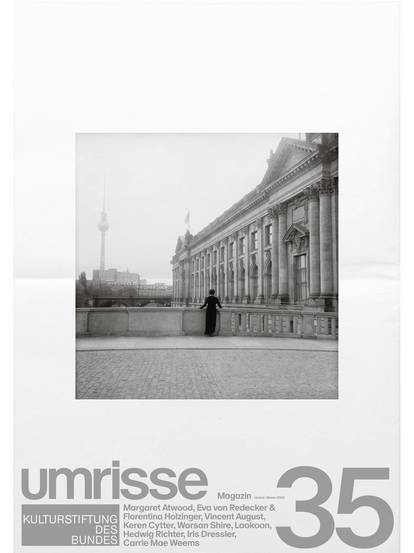
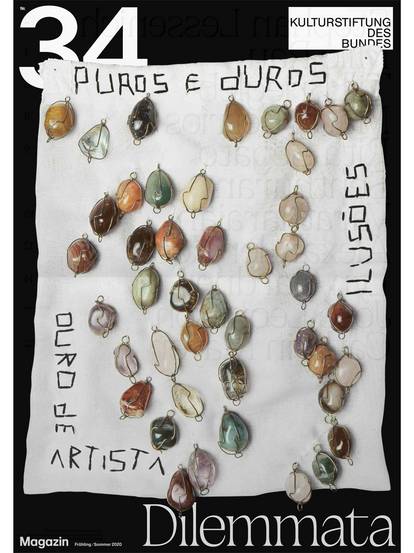
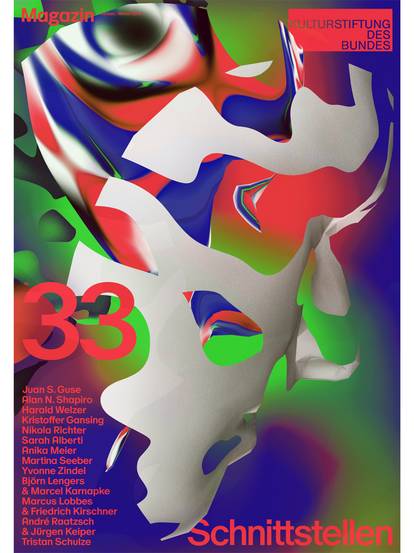

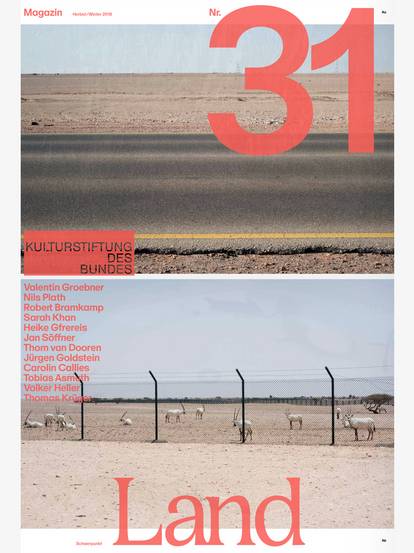
![[Translate to English:] Magazine 30](/fileadmin/_processed_/c/b/csm_magazin30_vorschau_9005f773d3.jpg)
